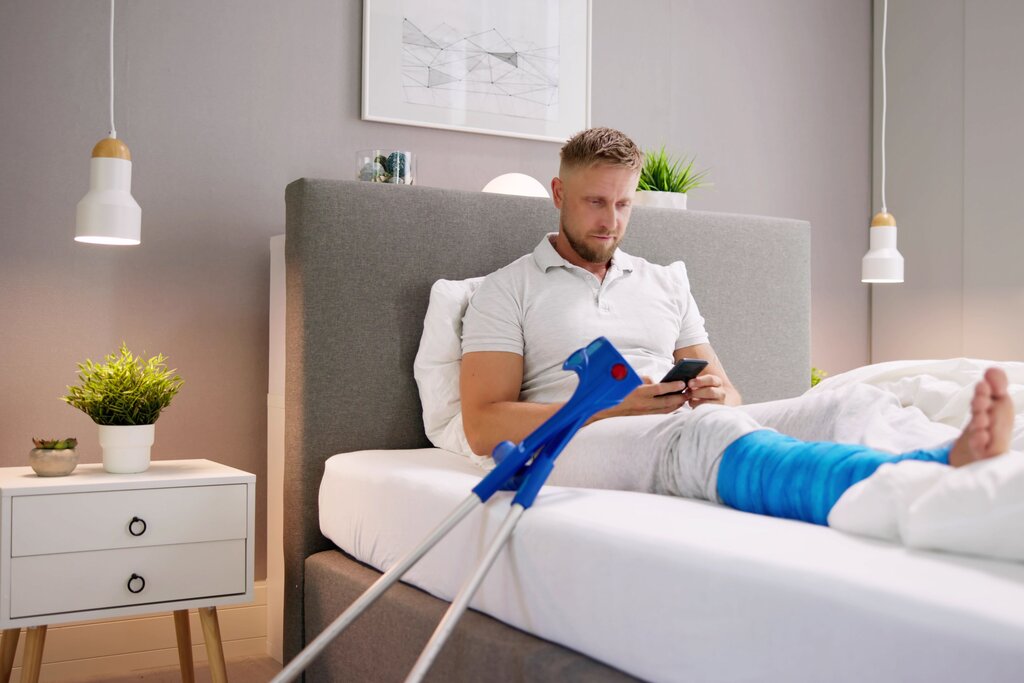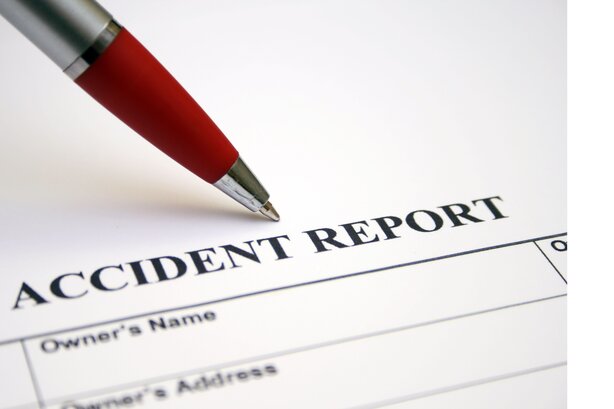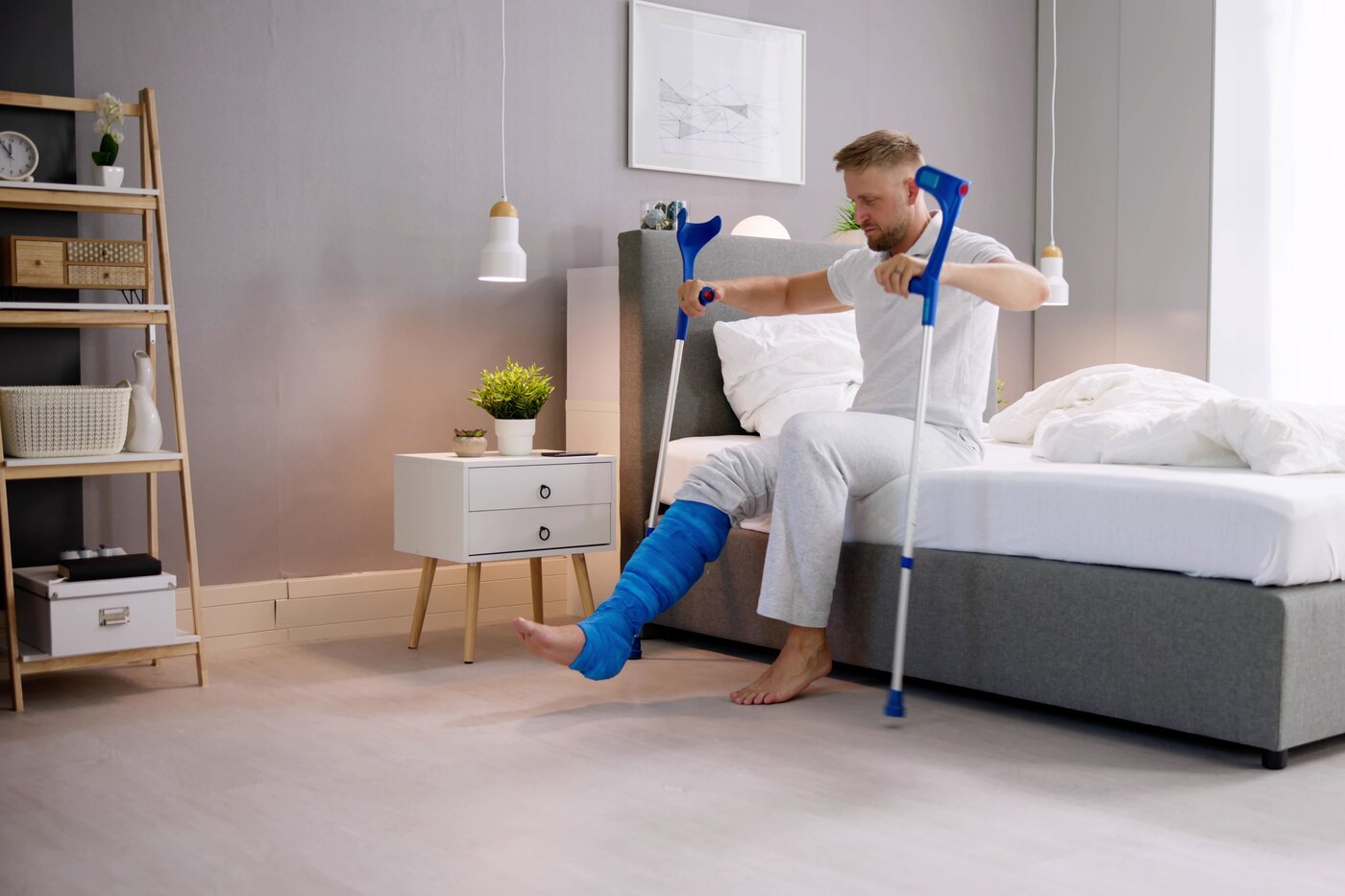Navigating Work-Related Injuries as a Self-Employed Individual

Being self-employed offers great freedom and flexibility but comes with the responsibility of managing one's own safety net, including insurance. Unfortunately, accidents can happen unexpectedly, leaving many self-employed individuals wondering what legal options are available when injured at work without insurance. This predicament forces one to navigate a complex legal landscape to seek compensation and support for recovery. Understanding the available legal routes and knowing your rights is crucial to ensure you are not left bereft of aid.
The absence of insurance should not necessarily mean the end of financial security following an injury. Several legal avenues can provide the necessary support such as legal claims, social benefit entitlements, and possibly third-party liability claims depending on the circumstances of the injury. With proper guidance and resources, self-employed individuals can strategise their next steps to manage such unfortunate events effectively.
Understanding Worker Rights
Legal rights still offer protection to those without insurance. Understanding your rights under the Health and Safety at Work Act ensures you are informed when incidents occur.


Exploring Third-Party Liability
In cases where others may share responsibility for an accident, exploring third-party liability claims can provide some recourse and financial relief for the injury incurred.

According to the Health and Safety Executive, in 2022, approximately 13% of self-employed individuals reported work-related injuries. Recognising these figures highlights the frequency of such incidents and the importance of preparedness.UK Accident Statistics

Reports indicate that self-employed individuals can face an average loss of £5,000 in income due to work-related injuries each year. This underscores the need for financial planning and legal knowledge to effectively mitigate potential losses.Financial Impact of Injuries

Steps to Take Following an Injury
When an injury occurs, immediate action can make a significant difference in the subsequent process. First, document the incident thoroughly. Collect evidence, gather witness statements if applicable, and ensure any medical reports highlight the cause and extent of the injuries. Keeping a detailed account supports a stronger case if seeking legal redress or financial aid.
Consulting with legal experts can illuminate various support options. Utilizing resources provided by industry experts can guide you through the steps to follow and advice on managing the aftermath of such challenges. Using the support system effectively can ensure you navigate the aftermath without further compounding your financial worries.
Legal Services and Options for Claims
Legal assistance is invaluable when navigating post-injury processes. Access to expert legal professionals can streamline the claims process. Services can provide not only consultation but also potentially pave the way to claiming benefits from government programs or pursuing lawsuits if negligence by third parties contributed to the injury.
When approaching these paths, ensure compliance with legal timeframes and requirements. Legal experts are adept at deciphering the complex regulations involved, ensuring your case's best possible outcome. Equipped with comprehensive information, self-employed individuals can tackle these challenges with a clearer understanding of their legal position.

Benefits and Financial Support for Temporary Inability to Work
If you find yourself temporarily unable to work due to illness, injury, or other personal circumstances, there are several benefits and financial support options available to help you manage during this challenging time. Understanding these options can provide you with the necessary resources to navigate your financial situation effectively.
If you’re unable to work due to a health condition or disability, you may be eligible for Employment and Support Allowance (ESA). There are two types: Contribution-based ESA based on your National Insurance contributions and Income-related ESA based on your financial situation.Employment and Support Allowance (ESA)

If you are temporarily unable to work, Universal Credit may be available to you. It is a payment designed to help with living costs for those on a low income or out of work. Universal Credit considers your household's total income, so even if you're receiving SSP or ESA, you might still qualify for additional support.Universal Credit

If your condition affects your daily living or mobility, you might be eligible for Personal Independence Payment (PIP). PIP is not dependent on your ability to work and can provide financial support to cover the extra costs associated with your condition.Personal Independence Payment (PIP)

Benefits and Financial Support for Temporary Inability to Work
If you find yourself temporarily unable to work due to illness, injury, or other personal circumstances, there are several benefits and financial support options available to help you manage during this challenging time. Understanding these options can provide you with the necessary resources to navigate your financial situation effectively.
Tax Tips for Self-Employed

Maintain a financial buffer to help absorb unexpected disruptions and emergencies that may arise. This mitigates immediate impacts while longer-term solutions are actively sought.Establish a Financial Buffer for Unexpected Disruptions

Seek professional guidance for any claims or legal steps; it enables efficient navigation through processes, maximising legal benefits feasible under prevailing circumstances.Consult Professionals for Effective Claims

Regularly update safety and health protocols; proactively evaluate risk areas to minimise potential injury occurrences, protecting both personal welfare and business continuity.Update Safety Protocols to Minimise Injury Risks

Self-Employed Insurance Fun Fact
Did you know that self-employed individuals can receive income protection insurance that covers up to 70% of their earnings in the case of injury or illness? This coverage is a little-known but valuable option for those taking proactive steps to secure financial stability alongside their entrepreneurial freedom.
Handling Uninsured Injuries: Expert Advice

Embarking on recovery requires strategic planning, especially without insurance. Begin by utilising all available resources like free legal advisors and government support programs. The road to recovery should include understanding the breadth of support possible through thoughtful legal pursuits.
Building connections with experienced professionals beyond immediate financial assistance can be empowering. Their advice can prepare you for filing claims correctly or understanding the potential avenues for compensatory awards, which relieve immediate financial pressures and contribute to long-term recovery.

Research available government programs offering financial support to accident victims can open doors for monetary relief during recovery. Numerous schemes exist aimed specifically at assisting the uninsured.Claim Benefits

Familiarise yourself with rights under UK law, especially concerning treatment and compensation access. Solid advice from informed professionals can further safeguard your interests and amplify claim outcomes.Know Your Rights
Summary
Navigating life as a self-employed individual demands foresight and planning. While insurance provides a safety net, not all have access or elect for such coverage. As seen, legal provisions may still offer avenues for redress in the absence of insurance. Key to accessing these resources is documentation and timing, maintaining financial resilience, and leveraging technology solutions that provide assistance and direction through complex legal environments.
Always be proactive in understanding your risk landscape and rights, ensuring effective preparation against unforeseen events. Alongside these essentials, ongoing learning fosters a robust financial foundation enabling continuity even through unexpected personal challenges.
By planning effectively and leveraging available legal resources, self-employed individuals can better prepare for uncertainties, ensuring both immediate recovery and sustaining long-term financial health.
Frequently Asked Questions
What are the first steps after a work injury?
Immediately document the incident and gather evidence. Seek medical attention to substantiate claims and consult legal advice promptly.
Are self-employed individuals eligible for government aid after injuries?
Yes, there exist several government programs designed to support the uninsured in times of injury, providing financial relief during recovery phases.
How beneficial are legal resources post-injury?
Legal resources offer vital support and expert advice, helping navigate post-injury claims efficiently while minimising complex legal challenges.
Can I claim against a third party for workplace injuries?
In certain circumstances, if another party shares fault, you may explore liability claims against them for compensation beyond standard benefits.
Do critical injury compensations cover self-employed individuals?
While critical illness policies may differ, certain protections do exist. Research specific options tailored to meet self-employed realities.




